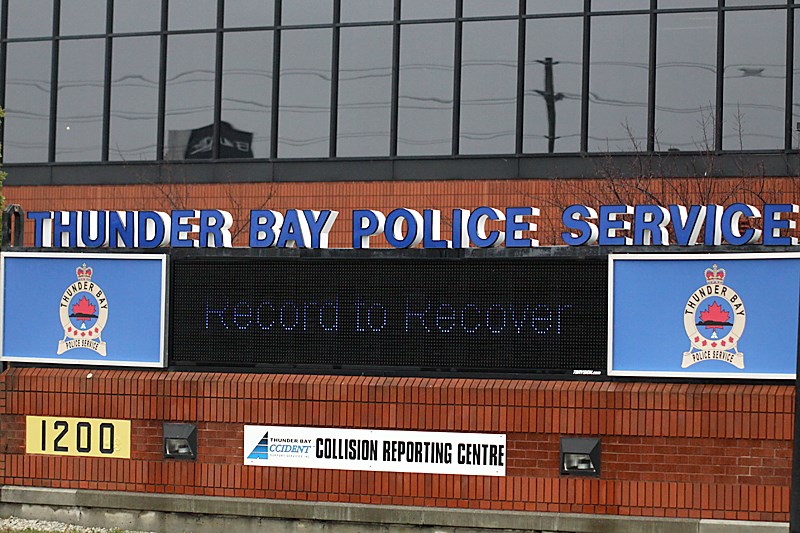THUNDER BAY - High-ranking officials with the Thunder Bay Police say they welcome the assistance of the chief commissioner of the Ontario Human Rights Commission in dealing with allegations of racism and systemic discrimination.
On Thursday, a letter from the Thunder Bay Police Services Board to Renu Mandhane, chief commissioner with the Ontario Human Rights Commission, was made public, applauding the OHRC for its suggestions to implement organizational change at the city police service.
“We are all too aware of the issues that exist with respect to human rights and policing in Thunder Bay and feel as though we can only benefit from having your expertise at the table,” states the letter, signed by Thunder Bay Police Services board chair, Jackie Dojack and Thunder Bay Police chief, J.P. Levesque.
“We truly hope that this is the beginning of a productive working relationship.”
On Tuesday, the Thunder Bay Police Board unanimously decided to welcome the assistance of the human rights commissioner. The letter, issued by the OHRC on Oct. 27, called on the Thunder Bay Police to implement immediate change to address the allegations.
“The Ontario Human Rights Commission believes that the allegations of racism and systemic discrimination within the TBPS require proactive, immediate, and independent steps to build confidence and trust in the TBPS,” Mandhane writes in the letter. ”As a first step, we encourage the TBPS Chief and TBPS Board Chair to publicly commit to a co-ordinated, time-bound, and appropriately resourced human rights organization change project.”
Mandhane, who has not received an official copy of the letter yet but saw it on social media, said the letter is a good sign for the TBPS.
“It makes a high level commitment and at this stage, that is what we would expect,” she said. “We wouldn’t expect a lot of details at this early stage, but certainly the fact that the letter is signed by both the board chair and the chief of police is a very good sign.”
Mandhane added that she is hoping that changes that are made as a result of the human rights organizational change project will not be a short term solution, but a cultural shift for the entire institution.
“At the front end, they require leadership from the board and the chief, the leaders in the institutions show a very public commitment and require a long term commitment,” Mandhane said.
The letter from the TBPS states they are working to improve policing procedures and practices as it relates to human rights.
“To date, we have pursued internal training programs to focus attention on the human rights issues that exist within our community,” the letter states. “We have also attempted to actively engage our senior staff members with respect to cultural awareness and police practices. We continue to undertake numerous other initiatives to make our organization better.”
“We feel that with your assistance, we can take what we have done and build upon it to make it an effective project that will help us see the desired results,” the letter continues.
A meeting was requested in the letter between Levesque and Mandhane to discuss projects being undertaken by the TBPS to date and to get feedback on how to improve upon those projects.
“And how we can effectively move forward in implementing the steps outlined in your initial letter,” the letter concludes.
The OHRC is planning to meet face-to-face with the TBPS to provide strategic advice on moving forward with the project. Before the initial letter was sent, Mandhane did meet with TBPS officials in early October.
“Just the idea of a project like this was certainly not something they were actively considering at that point in time,” she said. “I think that we got the letter today suggesting that the board is willing to devote resources and time into this, it is a shift from even a month ago from when we spoke to them.”
The full letter is available on the Thunder Bay Police Services website.
Thunder Bay Police have been contacted for comment, but weren't immediately available.
